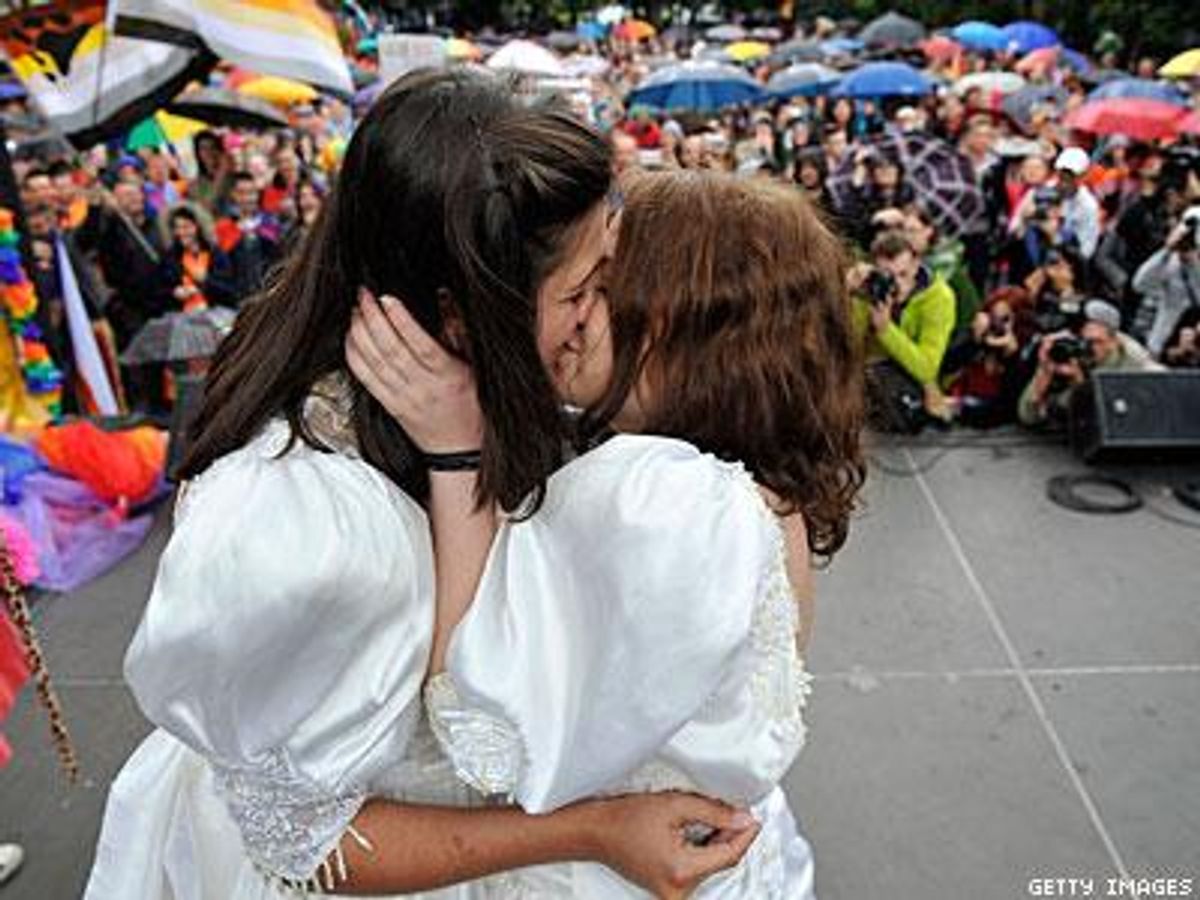Lawmakers in Slovakia overwhelmingly approved a constitutional amendment defining marriage as a "unique bond between a man and a woman" this week, reports the Slovak Spectator.
Slovakian LGBT leaders were quick to respond, with LGBTI rights organization Iniciativa Inakosts Martin Macko calling the amendment "an extraordinarily sad report on the state of democracy in Slovakia" in a written statement.
The Spectator reports that Macko also believes the marriage amendment hurts families and comes at a time "when the deputies are making an effort to protect, from the imagined threat coming from a small minority, by de facto declaring all families not established through marriage not worthy of protection."
BuzzFeed noted that Slovakia is the seventh European Union member-country to ban same-sex marriage. Meanwhile, as Washington Blade pointed out, Iceland, England, Wales, Norway, Sweden, Denmark, the Netherlands, Belgium, France, Spain, and Portugal all provide the right to marry to same-sex couples living in those EU nations. Scotland's marriage equality law is expected to go into effect around the end of this year.
Additionally, Luxembourg and Ireland may soon join the ranks of European nations that embrace marriage equality, with votes pending in the legislature and among members of the public, respectively.
For now, more countries in the comparatively liberal union of European nations extend marriage rights to same-sex couples than do not. Nevertheless, the fact that some EU countries, including Slovakia's fellow former Soviet-bloc neighbor, Croatia, have recently acted against equality is troubling to LGBT rights groups.
According to the Spectator, the move to define marriage as the exclusive purview of straight couples came as the result of a "peculiar" alliance of parties in the Slovakian parliament. Equally strange, the bill was bundled with a completely unrelated judicial-reform bill, prompting the European Association of Judges to claim that the move was "at odds with international standards."
The International Gay, Lesbian, Bisexual, Trans and Intersex Association-Europe was quick to condemn the amendment.
"The explanatory document accompanying the constitutional amendment make[s it] clear that 'it is impossible to establish the rights and duties associated with marriage in any other way.' Such situation is likely to make impossible any forms of legal recognition of same-sex partnerships," ILGA-Europe said in a written statement.


















































































